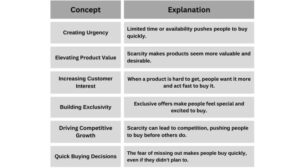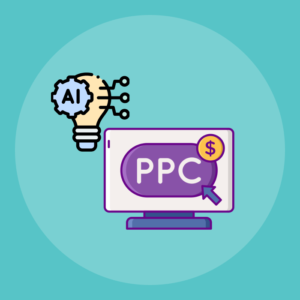Ecommerce PPC strategies are vital in today’s digital marketplace, providing businesses with a robust means to drive targeted traffic and boost sales. As online competition intensifies, leveraging effective pay-per-click advertising can set your ecommerce venture apart. Understanding the nuances of various PPC platforms, key performance metrics, and the integration of innovative tactics can empower brands to achieve significant growth.
From Google Ads to social media platforms, the opportunities for ecommerce PPC are vast. This overview will explore essential strategies, including enhancing link popularity and utilizing paid surveys, that can elevate your campaigns and ultimately lead to a higher return on investment.
Ecommerce PPC Strategies Overview
PPC (Pay-Per-Click) advertising plays a crucial role in the ecommerce landscape, allowing retailers to reach their target audience effectively while managing their marketing budgets. By leveraging paid search and display ads, ecommerce businesses can quickly gain visibility and drive traffic to their online stores. This overview explores the significance of PPC advertising, the platforms that support ecommerce campaigns, and the metrics that help evaluate their success.
Importance of PPC Advertising in Ecommerce
PPC advertising offers several advantages that are vital for ecommerce businesses. It enables immediate visibility on search engines and social media platforms, driving qualified traffic to product pages. Unlike traditional advertising methods, PPC allows for precise targeting based on demographics, interests, and behaviors, ensuring that the right message reaches the right audience. This targeted approach not only enhances brand awareness but also increases conversion rates.
PPC advertising is essential for ecommerce because it accelerates visibility and drives conversion through targeted outreach.
Platforms for PPC Campaigns Relevant to Ecommerce
Numerous platforms exist for ecommerce PPC campaigns, each offering unique features that can cater to different business needs. Here are some of the most popular ones:
- Google Ads: The most widely used platform, Google Ads enables retailers to display ads in search results and across the Google Display Network, targeting s relevant to their products.
- Facebook Ads: Ideal for visually appealing products, Facebook allows for targeted advertising based on user interests, demographics, and behaviors, making it effective for brand engagement.
- Bing Ads: This platform can be a cost-effective alternative to Google Ads, reaching a different audience segment and often yielding lower cost-per-click (CPC) rates.
- Amazon Advertising: Given the platform’s dominance in ecommerce, Amazon offers sponsored products and brand ads to increase visibility directly in search results on its site.
Key Metrics to Measure the Success of Ecommerce PPC Strategies
To ensure that PPC campaigns are effective and yield a positive return on investment (ROI), retailers must track several key performance indicators. The following metrics are pivotal in evaluating the success of ecommerce PPC strategies:
- Click-Through Rate (CTR): This metric indicates the percentage of users who click on an ad after seeing it. A higher CTR suggests that the ad is relevant and engaging to the audience.
- Conversion Rate: This measures the percentage of clicks that result in a sale, providing insights into the effectiveness of the landing page and overall product appeal.
- Cost Per Acquisition (CPA): This metric calculates the total cost of acquiring a customer through PPC advertising, helping retailers to understand their marketing efficiency.
- Return on Ad Spend (ROAS): This critical metric assesses the revenue generated for every dollar spent on advertising, indicating the overall profitability of the PPC campaign.
Effective Link Popularity Tactics

Building link popularity is paramount for enhancing the visibility of ecommerce sites. Well-executed link-building tactics not only improve search engine rankings but also offer significant boosts to PPC campaign performance. By understanding the influence of link popularity, ecommerce businesses can strategically position themselves for online success.Link popularity refers to the number and quality of backlinks pointing to a website. It plays a crucial role in both organic search results and paid advertising strategies, as search engines often consider link quality when determining ad placement and relevance.
A strong link profile increases a site’s authority, leading to better PPC performance and potentially lower costs per click.
Methods to Enhance Link Popularity
Implementing effective strategies to boost link popularity is essential for ecommerce success. The following approaches provide practical methods to enhance your link-building efforts:
- Content Marketing: Creating valuable, shareable content is one of the most effective ways to attract backlinks. This includes infographics, how-to guides, and blog posts that provide insights relevant to your target audience.
- Guest Blogging: Contributing articles to reputable blogs in your niche can significantly improve link popularity. Ensure that your guest posts include contextual links back to your site.
- Influencer Collaborations: Partnering with industry influencers can lead to high-quality backlinks and increased exposure. Influencers can share your products or services on their platforms, generating natural backlinks.
- Resource Pages and Directories: Submitting your ecommerce site to relevant resource pages and directories can enhance link profile diversity. Focus on directories that are well-respected in your industry.
- Social Media Engagement: Active participation on social media platforms can indirectly contribute to link popularity. Engaging content is more likely to be shared, leading to organic backlinks.
- Building Relationships: Networking with other businesses and website owners can lead to organic backlink opportunities. Reach out for partnerships, collaborations, or mutual promotions.
These methods can significantly improve the authority of your ecommerce site, leading to better rankings and visibility.
Influence of Link Popularity on PPC Performance
Link popularity directly influences the overall performance of PPC campaigns. Higher link authority can result in better Quality Scores on platforms like Google Ads. A higher Quality Score may lead to lower cost-per-click (CPC) rates and increased ad placements. This means that having a strong backlink profile not only enhances organic search visibility but can also result in more cost-effective ad spending.For example, an ecommerce site that has successfully leveraged link-building strategies experienced a 25% decrease in their average CPC after improving their link profile through consistent content marketing and guest blogging efforts.
This demonstrates the tangible benefits of focusing on link popularity as part of a comprehensive PPC strategy.
Successful Link-Building Strategies in Ecommerce
Implementing successful link-building strategies can be transformative for ecommerce sites. Below are some proven examples that illustrate effective tactics:
- Case Study of Zappos: Zappos is known for its innovative customer service and satisfaction policies, which they effectively promote through extensive content marketing. Their blog features helpful articles and guides that naturally attract backlinks from various sources.
- Starbucks’ Community Engagement: Starbucks leverages its community initiatives, often resulting in local news stories and blog posts linking back to their main site. Their focus on social responsibility generates organic interest and backlinks.
- Evernote’s Resourceful Guides: Evernote regularly publishes comprehensive guides and tips on productivity, which not only serve users but also attract numerous backlinks from relevant sites seeking valuable content.
- ASOS’ Influencer Campaigns: By collaborating with fashion influencers, ASOS has successfully built a network of backlinks through authentic endorsements and product placements, significantly enhancing their link popularity.
These examples highlight how ecommerce brands can effectively utilize link-building strategies to improve their online presence and enhance their PPC performance.
Integrating Paid Surveys and PPC

In today’s competitive eCommerce landscape, integrating paid surveys into your PPC strategy can provide valuable insights to refine targeting and improve campaign effectiveness. By leveraging feedback from potential customers, brands can gather critical data that informs choices, ad messaging, and audience segmentation. This symbiotic relationship between surveys and PPC campaigns can ultimately enhance return on ad spend (ROAS) and drive conversions.Paid surveys serve as a tool to collect data directly from consumers regarding their preferences, shopping habits, and motivations.
The data gathered can help identify specific audience segments, allowing for more tailored PPC campaigns. The integration of survey insights into PPC strategies involves several key steps to ensure that the data translates effectively into actionable advertising strategies.
Framework for Integrating Survey Data into PPC Campaigns
To effectively integrate paid survey data into your PPC campaigns, consider the following framework that Artikels the process from data collection to campaign execution:
1. Design Targeted Surveys
Create surveys that focus on key areas such as customer preferences, pain points, and purchasing behaviors. Ensure that the questions are designed to extract actionable insights that align with your PPC goals.
2. Select and Incentivize Participants
Choose a demographic that matches your target audience for the surveys. Offering incentives can increase participation rates and ensure that the feedback is representative.
3. Analyze Survey Results
Once responses are collected, analyze the data to identify trends and insights. Look for patterns related to product features, pricing sensitivity, and preferred channels of communication.
4. Segment Audience Based on Insights
Use the analyzed data to create audience segments. This might include high-intent shoppers, brand loyalists, or price-sensitive customers.
5. Adjust PPC Campaigns Accordingly
Update your PPC campaigns to reflect the insights gained. This may involve refining lists, adjusting ad copy, and selecting the right targeting options to appeal to the identified segments.
6. Monitor and Optimize
Continuously monitor the performance of the revised PPC campaigns. Utilize A/B testing to further refine ads based on ongoing feedback and insights.
“Effective PPC strategies should be driven by consumer insights gathered directly from the target audience.”
Several eCommerce brands have successfully utilized paid surveys to enhance their PPC results. For example, a leading online apparel retailer conducted surveys to understand customer preferences around styles and pricing. This information allowed them to create highly targeted ads that resonated with specific customer segments, resulting in a 25% increase in click-through rates (CTR) and a 15% boost in sales within a quarter.Another example involves a beauty product company that used surveys to gauge consumer sentiment about product ingredients and packaging.
By adjusting their PPC ads to highlight clean ingredients, they improved engagement rates significantly, leading to a conversion rate increase of over 30%.Integrating paid surveys into your PPC strategy is not just about collecting data; it’s about translating that data into actionable insights that drive your campaigns toward better performance and higher returns.
Last Recap
In conclusion, mastering Ecommerce PPC strategies is essential for any online retailer looking to thrive in a competitive landscape. By implementing effective tactics, measuring success through key metrics, and continuously refining your approach, your ecommerce business can unlock substantial growth and increased visibility. Embrace these strategies to ensure your brand not only competes but excels in the bustling world of online sales.
General Inquiries
What is PPC advertising?
PPC advertising is a model where advertisers pay a fee each time their ad is clicked, allowing them to gain visibility on search engines and social media platforms.
How can I measure the success of my PPC campaigns?
Success can be measured through key metrics such as click-through rates (CTR), conversion rates, and return on ad spend (ROAS).
Which platforms are best for ecommerce PPC?
Popular platforms include Google Ads, Facebook Ads, and Amazon Advertising, each offering unique advantages for reaching targeted audiences.
How often should I review my PPC strategies?
PPC strategies should be reviewed regularly, ideally on a monthly basis, to assess performance and make necessary adjustments.
Can paid surveys improve my PPC targeting?
Yes, paid surveys can provide valuable insights into customer preferences and behaviors, allowing you to refine your targeting for better results.





